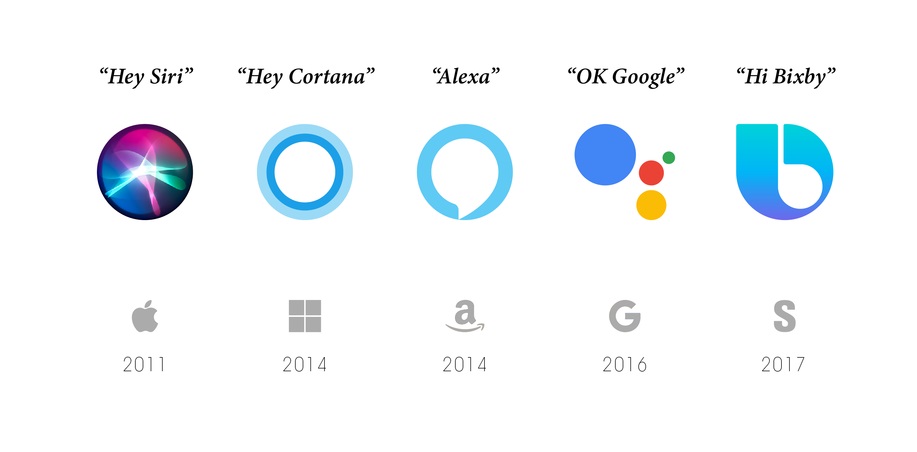Imagine when you just speak to your phone or computer and it would find what you’re looking for—no typing needed. That’s what voice search is all about!
In other hand, Voice Search Optimization is like teaching websites to understand how a common people talk.
Think about how kids use their tablets or phones to ask questions out loud instead of typing them. Well, if they can do it, why can’t we?
That’s where Voice Search Optimization comes in.
Basically, it’s making sure your website is set up to understand and answer questions people might ask using their voice.
So, when you ask your phone for directions or a recipe, the website you’re getting the info from has been optimized for voice search.
More and more people are using voice search because it’s easy and quick. Whether you’re asking for directions, looking for a new recipe, or just curious about something, voice search is becoming the go-to way to find information online.
And it’s not just tech-savvy folks using voice search—teenagers and people who might not be great at reading are using it a lot too. That’s why businesses are starting to pay attention and making sure their websites are ready for voice search.
VSO is all about making sure your website speaks the same language as your audience, so when they ask a question, they get a helpful answer—just like having a chat with a friend!
What is Voice Search Optimization (VSO)?
Voice Search Optimization or VSO for short, indeed focuses on ensuring that search engines can understand spoken queries effectively, especially when users interact with devices like smartphones or smart speakers.
It aims to optimize content and technical aspects to enhance the chances of being accurately interpreted by voice recognition systems.
The comparison to having a smooth conversation with technology nicely encapsulates the goal of VSO.
Growing importance of voice search:
More and more people are using their voices to search for things online.
Instead of typing, they ask questions out loud, and technology, like virtual assistants and search engines, helps them find answers.
The use of voice search is growing because it’s becoming a popular and convenient way for people to get information.
Impact on search engine rankings and user experience:
When you use voice search, the way websites are ranked by search engines can change. It’s not just about having the right keywords; it’s also about sounding natural and being helpful in a conversation.
This shift impacts how users experience the internet—they get answers faster and in a more conversational manner.
Understanding Voice Search!
To understand it, you should know how users formulate spoken queries when using voice assistants like Google’s.
Unlike traditional typed searches, voice searches tend to be more conversational and natural in tone.
Users may phrase their queries as complete sentences or questions, often using terms like:
- Who
- What
- Where
- When
- How
For Voice Search Optimization (VSO), it’s necessary to grasp this conversational aspect of voice searches.
Website content can be optimized to match these natural language patterns by understanding how people verbally express their search intent.
This optimization includes using long-tail keywords, creating FAQ pages, structuring content to provide clear answers to common questions, and ensuring local relevance for location-based queries.
Key Factors for Voice Search Optimization!
When we talk about making voice searches work better for your website content and queries, there are a few important things to consider.
Let’s break them down:
Natural Language Processing (NLP):
NLP is the tech wizardry that enables computers to understand and respond to human language, making interactions with technology feel as natural as chatting with a friend.
Instead of using short and direct phrases, think about how you naturally talk. Voice searches respond better to conversational language, so it’s like asking a friend for information.
Using Google Natural Language API, you can enhance your website’s Voice Search Optimization (VSO) by analyzing your own content.
Here’s how:
- Access Google Natural Language API: Visit the Google Natural Language website and paste your website content into the provided space. Then click “Analyze.”
- Analysis Categories: The content will be divided into four categories:
- Entities: This section identifies and separates entities such as persons, organizations, numbers, and consumer goods mentioned in your content.
- Sentiment: Sentences are separated based on positive or negative sentiments. This can help you gauge the overall sentiment of your content.
- Syntax: This section provides the structure and syntax of each sentence analyzed.
- Categories: It provides information about the category of your content, helping you understand its main topic or theme.
You can gain valuable insights to optimize it for voice search, including identifying entities, sentiment, syntax, and categories by using the Google Natural Language API to analyze your content.
Long-Tail Keywords:
In the past, short phrases were popular for searches. Now, using longer and more specific phrases (long-tail keywords) is beneficial. It’s like telling your device exactly what you’re looking for.
Long-tail keywords often mimic how we speak.
You increase the chances of your information appearing when someone asks a question out loud by including these conversational phrases in your content.
The steps for optimizing content with long-tail keywords:
- Shift to Long-Tail Keywords: Instead of short phrases, use longer, more specific ones, known as long-tail keywords, which mimic how people speak in voice searches.
- Identify Conversational Phrases: Long-tail keywords resemble natural speech patterns. Incorporate these phrases into your content to improve visibility in voice search results.
- Optimize Content: Focus on providing clear, concise answers to common questions users ask aloud, aligning with the conversational nature of voice search.
- Optimize Content for Voice Search: Focus on creating informative and relevant content that directly addresses the questions and queries users might ask aloud.
This approach increases the likelihood of your website appearing in voice search results and improves its overall visibility and relevance to users.
Local SEO for Voice Search:
If you have a local business, it’s necessary to make sure your online presence is optimized for voice searches asking about local services or products.
This could include things like optimizing your Google My Business listing and local business directories for NAP.
Including your location in your online content helps voice search platforms connect users with local businesses.
For example:
If you run a pizza place, you’d want your business to pop up when someone asks their device for the best pizza nearby.
- Google My Business (GMB): Optimize your GMB listing with accurate information like address, phone number, and business hours, making it easier for voice search platforms to provide accurate results.
- Local Directories: Ensure consistent NAP information across local directories to improve local search rankings and enhance visibility in voice search results.
- Content Location: Incorporate your business location naturally into online content to align with how users phrase voice search queries, increasing the likelihood of your business being discovered for local services or products.
- Local Keywords: Use local keywords in your content to match the phrases users might use when conducting voice searches for nearby businesses, enhancing your website’s relevance and visibility in voice search results.
- Reviews: Encourage positive reviews from satisfied customers to improve your business’s reputation and credibility, which can positively impact your ranking in local voice search results.
Local businesses can improve their online presence and visibility in voice search results, making it easier for potential customers to find them when searching for local services or products.
Mobile Optimization:
Since many voice searches happen on mobile devices, it’s important that your website looks good and works well on phones and tablets.
Voice search aims to provide quick answers.
If your website loads slowly, users might lose interest. Making sure your pages load fast is essential for a smooth voice search experience.
- Evaluate Mobile Compatibility: Use tools like Google’s Mobile-Friendly Test to assess your website’s mobile performance.
- Update to Responsive Design: Ensure your website design is responsive, adapting to different screen sizes.
- Optimize Loading Speed: Improve page loading times by optimizing images and minimizing CSS/JavaScript files.
- Ensure Content Accessibility: Make sure all content is easy to access and navigate on mobile devices.
- Test Across Devices: Test your website on various devices and browsers to ensure compatibility.
- Monitor and Improve: Regularly monitor performance metrics and make iterative updates to enhance mobile optimization for voice search.
You can effectively implement VSO with a focus on mobile optimization, ensuring that your website is well-equipped to meet the needs of mobile users and perform well in voice search results.
Featured Snippets:
Featured snippets are those highlighted answers you often see at the top of search results. To increase the chances of your content being featured, structure it in a way that directly answers common questions.
Craft your content in a way that easily lends itself to being presented in a snippet. Think about concise and informative responses that directly address common queries.
Here are the steps to optimize for featured snippets in Voice Search Optimization (VSO):
- Keyword Research: Identify common questions related to your niche using keyword research tools.
- Create Clear and Concise Content: Craft content that directly answers these questions in a clear and concise manner.
- Use Structured Data Markup: Implement structured data markup (e.g., schema.org) to help search engines understand the content and context of your answers.
- Format Content Appropriately: Use headers (H1, H2, etc.), lists, and tables to organize your content logically and make it easier for search engines to extract featured snippets.
- Optimize Meta Tags: Write descriptive meta titles and descriptions that accurately summarize the content and encourage clicks.
- Provide High-Quality Information: Ensure your content provides valuable and accurate information that users find helpful.
- Monitor Performance: Regularly monitor your content’s performance in search results and make adjustments as needed to improve its chances of being featured.
- Keep Content Updated: Continuously update your content to ensure it remains relevant and accurate, increasing its chances of being featured in featured snippets.
You can optimize your content for featured snippets, increasing its visibility and effectiveness in voice search results.
Content Creation for Voice Search
Finding information is as easy as asking a question out loud to your phone or smart speaker.
For businesses, it means making sure their online content can be easily found when someone asks a question with their voice.
When you’re creating content, it’s like talking to a friend.
Use words and phrases that feel natural. Avoid overly technical or formal language. Imagine you’re having a chat, and your content will be more likely to connect with voice search.
People often ask questions when they use voice search.
You can make sure your content directly answers these questions while creating content.
Keep it short and to the point.
Imagine you’re giving a quick and helpful response to someone asking you something out loud.
Let’s discuss few more top of the circle elements.
FAQ Optimization:
Think of your content like a frequently asked questions (FAQ) page.
Organize it in a way that addresses common queries users might have. This makes it easier for voice search to find and deliver the information people are looking for.
Anticipate the questions your audience might ask and provide clear, concise answers.
This not only helps with voice search but also enhances the overall user experience. It’s like being prepared to help your friend with any questions they might have.
Schema Markup:
Schema markup is like giving extra information to search engines about the content on your page. It helps search engines understand your content better.
When you use schema markup, it’s like adding more details to your conversation, making it easier for the virtual assistant to pick up on the important points.
You can increase the chances of your content being selected for voice search results by optimizing content for Schema. It’s like making your conversation stand out in a crowded room.
The more visible and easily understandable your content is, the more likely it is to be featured in voice search responses.
Summary of the Topic
So, it’s about staying flexible and ready for the changes that are bound to happen. Voice searches are evolving, and you want to be the expert who’s always ready for the next exciting move in the game!In the world of voice search, it’s like having a friendly chat with your device to find information quickly and easily. We’ve covered key strategies to make sure your website is voice search-friendly:
- Understanding Voice Search: Think of it as talking instead of typing, with virtual assistants like Siri, Google Assistant, and Alexa helping you out.
- Key Factors for Optimization: Use natural language, focus on long-tail keywords, optimize for local searches, make your site mobile-friendly, and aim for featured snippets.
- Content Creation: Imagine your content as a helpful conversation, structured like a friendly FAQ session. Use schema markup to make your points stand out.
- Technical Considerations: Ensure your site loads fast, is secure (with “https”), and is accessible to everyone, just like making sure your friend responds quickly and inclusively.
- Monitoring and Analytics: Keep track of your performance using analytics tools, just like a coach monitors a team’s progress in a game.
- Future Trends: Stay ready for the future with evolving technology, changes in how people talk to devices, and adapt your strategy to stay ahead in the voice search “game.”
You’re not just optimizing for voice search; you’re ensuring that your online presence remains dynamic and ready for whatever exciting developments the future holds by incorporating these strategies. It’s about making your website the go-to place for a friendly and helpful conversation with technology.




